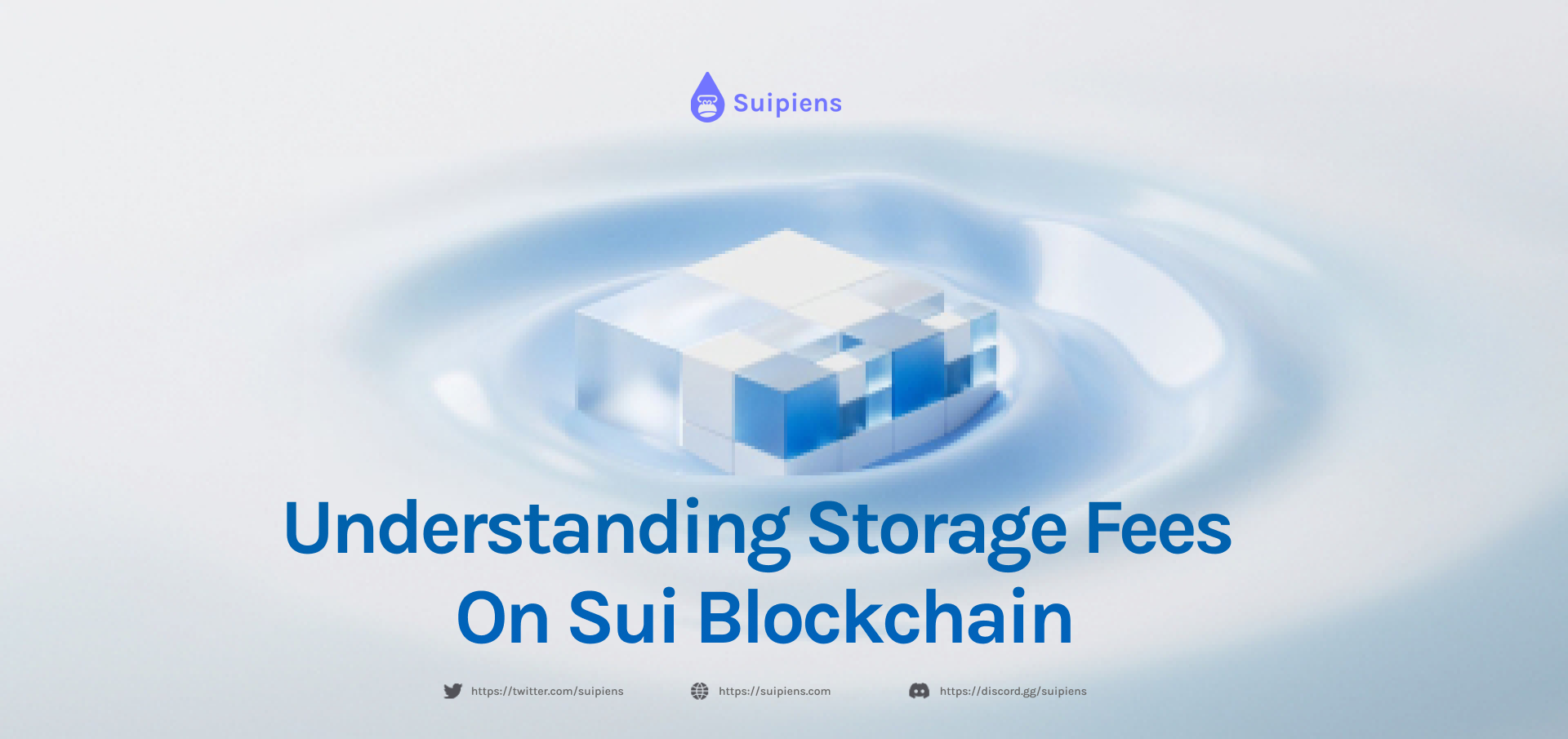Understanding Storage Fees on Sui Blockchain

Discover how Sui's storage fee model ensures network stability and enables Validators to maintain their infrastructure while simplifying the process for users.
Gas fees are an essential part of transactions on Sui, but did you know that storage fees also play a role? In this article, we'll explore storage fees on Sui and how they contribute to the overall tokenomics of the network.
How Storage Fees Are Calculated?
Sui's storage fees remain fixed unless updated through a governance proposal. Currently, the storage fee is set at 76 MIST, or 0.000000076 SUI, per storage unit. These fees cover the cost of data storage and remain stable due to the predictable nature of non-blockchain data storage costs.
To determine the storage fee for a transaction, Sui uses a straightforward calculation. Each storage unit represents one data byte, and a kilobyte equals 100,000 storage units. For example, if you have a one-kilobyte NFT, the storage fee would be 7.6 million MIST or 0.0076 SUI.
It's important to note that the storage fee is included in the total gas fee for a transaction. If you decide to delete data from Sui, you will receive a rebate equal to 99 percent of the original storage fee.
Supporting Network Stability with Sui's Storage Fund
Instead of distributing storage fees directly to Validators, Sui collects these fees and allocates them to a storage fund. This approach ensures that future Validators can cover the costs of storing assets transacted by Validators who might no longer be part of the network.
The assets in the storage fund are staked to Validators, and the stake rewards earned from this activity help offset the costs of data storage on Sui. As the amount of data stored on the network increases, the stake rewards also increase, ensuring that Validators' revenue aligns with their growing storage expenses.
By relying on staking rewards rather than the storage fund capital, Sui creates a self-supporting mechanism. The storage fund continues to accumulate fees from network transactions and provides rebates to users who remove their data from the network.
Stable Tokenomics and Flexibility
Sui's tokenomics model aims to be self-sustaining, with the storage fee mechanism playing a vital role in achieving this goal. The size of the storage fund directly reflects the amount of data stored on the network. As fees accumulate, the storage fund becomes a stable and reliable resource, supporting the network and the Validators who maintain it.
To adapt to changing circumstances, governance proposals occasionally adjust the storage fees based on external factors. For example, if data storage infrastructure costs decrease, storage fees may also decrease. Similarly, if the value of the SUI token rises significantly, it may be necessary to lower storage fees to maintain a balanced ecosystem.
Wrapping Up
Storage fees on Sui contribute to network stability by ensuring that Validators can maintain their infrastructure while providing an efficient and reliable storage solution for users. The storage fund, fueled by transaction fees, supports Validators and encourages the growth of the network. As Sui's tokenomics evolve, periodic adjustments to storage fees help maintain a sustainable ecosystem for all participants.

